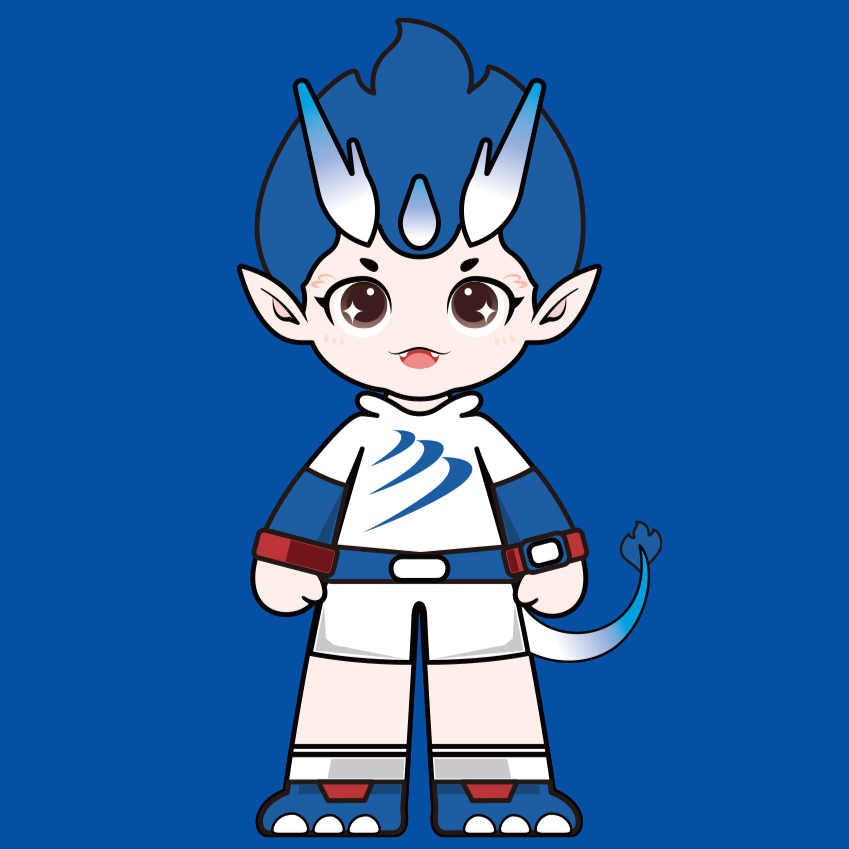
关于英语一般过去时的用法
2024-01-09 · 百度认证:云南新华电脑职业培训学校官方账号
 云南新华电脑学校
云南新华电脑学校

一般过去时用来表示过去某一时间内发生的动作或存在的状态以及过去习惯性、反复性的动作。谓语动词要用动词的过去式,常和表示过去的时间状语连用,如yesterday昨天、last night昨晚、last week上周、last year去年,等。
二、一般过去时的结构:(可分4类不同的结构)
1.Be动词的一般过去时
(1)在没有实义动词的句子中使用be动词, am is 的过去式为was; are的过去式为were
(2)肯定句式:主语 + be(was , were) + 其它.
I was very shy two years ago.
(3)否定句式:主语 + be(was , were) + not + 其它.
I was not very shy two years ago.
(4)一般疑问句:Be(was , were) + 主语 + 其它?
Were you very shy two years ago?
注:在这种构成中,be动词有人称和数的变化,即要根据主语选用was / were。Be动词分为单数和复数,was是表示单数,were是表示复数。
2. 实义动词的一般过去时态
肯定句要使用动词的过去式,否定句和疑问句要使用助动词do和 does 的过去式 did.
肯定句式:主语 + 动词(过去式)+ 其它
I ate breakfast 2 hours ago.
否定句式:主语 + didn’t + 动词(原形)+ 其它 【did not = didn’t】
I did not eat breakfast 2 hours ago.
一般疑问句:Did + 主语+ 动词(原形)+ 其它【do , does的过去时均为did】?
Did you eat breakfast 2 hours ago?
注:did和didn’t 是构成一般过去时的助动词,其特点是要在其后跟动词的原形。
3. 情态动词的一般过去时态
含有情态动词的一般过去时与含有Be动词的一般过去时,是十分相似,请注意观察。
肯定句式:主语 + 情态动词 + 其它.
She could sing well when she was young.
否定句式:主语 + 情态动词 + not + 其它.
She could not sing well when she was young.
一般疑问句:情态动词 + 主语 + 其它?
Could she sing well when she was young?
注:情态动词的过去式:can→could , may→might , must→must ,will-would,should-should.
4.特殊疑问句式:
特殊疑问词+be过去式+主语+其他?
特殊疑问词+情态助动词过去式+主语+动词原形+其他?
特殊疑问词+do/does过去式+主语+动词原形+其他?
What was your former name? 你以前叫什么名字?
Why was he late for school last Monday? 上星期一他为什么迟到?
What could she do twenty years ago? 20年前她能做什么?
三、 一般过去时的判断标志词
yesterday , the day before yesterday , last + 时间 , this morning
时间 + ago , just now , a moment ago , in + 过去的时间 .
四、规则动词的过去式
1.一般情况下,在动词原形后面加-ed。
look→looked play→played start→started visit→visited
2.以不发音e结尾的动词,在词尾直接加-d。
live→lived use→used
3.以“辅音字母+ y”结尾的动词,先将 y 改为i ,再加 –ed。
study→studied try→tried fly→flied
4.以重读闭音节(即辅音+元音+辅音)或r音节结尾,末尾只有一个辅音字母的动词,要先双写这个辅音字母后,再加 –ed。
stop→stopped plan→planned prefer→preferred
5.不规则动词的过去式需特殊记忆。
五、 一般过去时的基本用法
1.表示过去某个特定时间发生的动作或存在的状态。
He suddenly fell ill last night.
他昨晚突然病倒了。
2.表示过去的习惯性或经常发生的动作。常和often经常,always总是,once a week一周一次,等表示频度的时间状语连用。
She went to the cinema once a month when she was at school.
她上学时每个月去看一场电影。
When I was in the countryside, I often walked by the riverside.
我在乡下时经常在河边散步。
一般过去时表示过去某个时间里发生的动作或状态;过去习惯性、经常性的动作、行为。在英语语法中,“时“指动作发生的时间,”态“指动作的样子和状态。那么如何运用同学们知道吗。接下来我在这里给大家带来英语一般过去时的用法,我们一起来看看吧!
英语一般过去时的用法
一、一般过去时的用法基本有六种:
1、一般过去时表示在过去某个特定时间发生,也可以表示过去习惯性、经常性的动作。一般不强调动作的影响,只说明的事情。
句式:主语+动词过去式+宾语+其它
例句:I had a word with Julia this morning.
今天早晨,我跟朱莉娅说了几句话。
2、一般过去时常与表示过去的时间状语或从句连用。
例句:He was dead in 1990.他死于1990年。
3、表示过去连续发生的动作时,要用过去时。这种情况下,往往没有表示过去的时间状语,而通过上下文来表示。
例句:The boy opened his eyes for a moment,looked at the captain,and then died.
那男孩把眼睛张开了一会儿,看看船长,然后就去世了。
4、表示在此之前一段时间内经常或反复的动作。常与always,never等连用。
例句:Mrs. Peter always carried an umbrella.
彼得太太过去老是带着一把伞。
5、如果强调已经终止的习惯时要用 used to do(过去常常做,而不那样做了)
例句:He used to drink alcohol.
他过去喝酒。(意味着他不喝酒了。喝酒这个动作终止了)
6、有些句子,虽然没有表示过去确定时间的状语,但实际上是指过去发生的动作或存在的状态的话,也要用过去时。
I didn''t know you were in Paris.
我不知道你在巴黎。
二、A say goes意思是俗话说,是一般现在时;A say went是一般过去时。
go的第三人称单数: goes;复数: goes;现在分词: going;过去式: went;过去分词: gone。
扩展资料
一般过去时的时间状语有:
1、yesterday (morning、afternoon、evening):昨天(早上、中午、晚上)
2、the day before yesterday:前天
3、last night:昨晚
4、ago:以前
5、this morning/afternoon/evening:今天上午/下午/晚上
6、when引导的状语从句(动词过去时)
7、just now:刚才
8、in+整十数年份+s(⋯世纪⋯年代)
英语一般过去时的例句
1、你没尽自已最大努力去做这件事。You didn’t do your best to do it。
2、他已经拜访亲戚了。He visited relatives before。
3、我昨晚很疲劳。I was very tired last night。
4、冰冰刚吃了点东西。Bingbing ate sonmething before。
5、她什么时候上一年级?When was she in Grade ?
6、我昨日看电视了。I watched TV yesterday。
7、我们昨日没在一齐。We weren't together yesterday。
8、我以为你病了呢。I thought you were ill。
9、她去年上年级。She was in Gradelast year。
10、我们昨日在一齐。We were together yesterday。
11、艾米早就上网了。Amy surfed the net before。
12、他昨日很忙。He was busy yesterday。
13、她以前跳舞。She danced before。
14、那些日子他总是工作到深夜。He always worked into night those days。
15、上周他们在上海。They were in Shanghai last week。
16、我不明白你在巴黎。I didn''t know you were in Paris。
17、你们什么时光在一齐?When were you together?
18、他昨日不忙。He was not busy yesterday。
19、几分钟前他们还在那里。They were here only a few minutes ago。
20、上星期他们打过网球。He played tennis last week。
21、这天早晨,我跟朱丽亚说了几句话。I had a word with Julia this morning。
22、我们昨日没有玩好。We did not have a good time yesterday。
23、那男孩把眼睛张开了一会儿,看看船长,然后就去世了。The boy opened his eyes for a moment,looked at the captain,and then died。
24、他这天上午没上课。He didn’t have classes this morning。
25、你两天前没来学校。You were absent from school two days ago。
26、这天早晨,我跟朱莉娅说了几句话。I had a word with Julia this morning。
27、托尼已看过电影了。Tony saw a movie before。
28、你们昨日在一齐吗?Were you together yesterday?
29、我刚回到家。I came home just now。
30、昨日你们在哪里?Where were you yesterday?
31、她去年上几年级?Where was she last year?
32、我以前从不喝酒。I never drank wine。
33、安妮在早上唱歌了。Ann sang this morning。
34、史密斯先生昨日买了一辆新车。Mr。 Smith bought a new car yesterday。
35、Ben已经吃过午饭了。Ben had lunch before。

